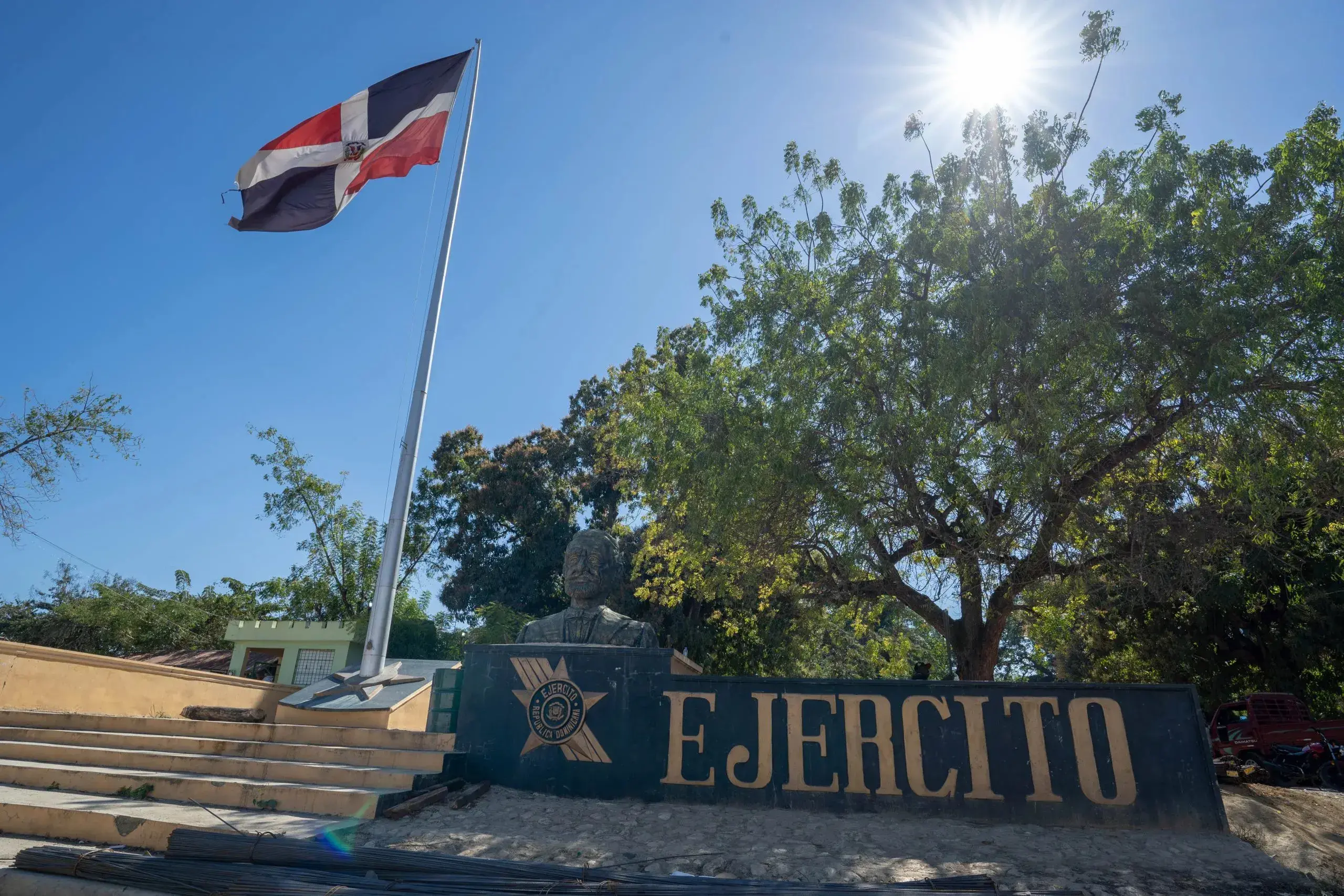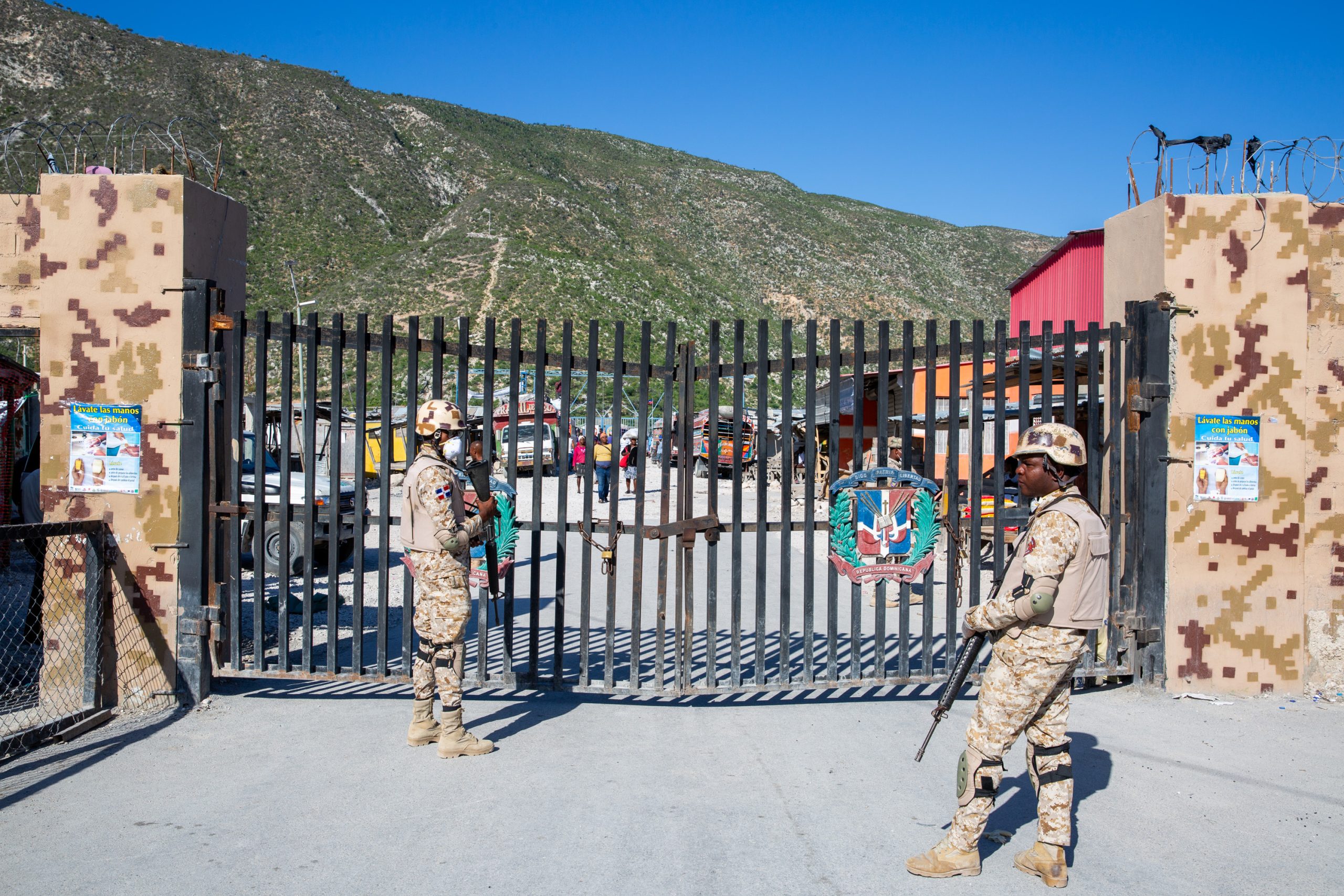
SANTO DOMINGO, Dominican Republic — I started fighting back tears again.
This time, it wasn’t while I was doing a phone interview as usual, like the one with the lady whose 14-year-old daughter was fatally shot in June 2020.
This time, it was while I was on my way back from the Dominican Republic to Haiti after reporting for this project in January 2023.

As a nonprofit journalism organization, we depend on your support to fund more than 170 reporting projects every year on critical global and local issues. Donate any amount today to become a Pulitzer Center Champion and receive exclusive benefits!
The streets in Cap-Haitien were so dark as I looked outside the window of the Caribe Tour bus. Like you really had to squint your eyes to see the houses. But in the Dominican Republic, there were street lights. That country wasn’t in the dark.
Cap-Haitien’s darkness reminded me of how lost Haiti is: The president was assassinated; people are struggling to eat; there’s no electricity; the healthcare system is in crisis; there’s gang violence and so many other problems. About everything that can go wrong in a country is happening in Haiti.
But right next door, in a country that shares the same island, things are working. That’s what was hurting. Sometimes you have to go to the neighbor’s house to know how bad your home is.
I went to the Dominican Republic to report on a project that consisted of articles such as the history of the conflict, Haitians having to hide because they’re illegal and more. It was my first time going to my neighbors’ home. I was curious to see how it looked.
But I wasn’t very excited to go. For one, even a single day outside of Haiti – ma patrie, the land where I came back to live to be with the people I love – felt like a stab to the heart. Second, everybody kept telling me how Dominicans mistreat Haitians. Some even told me they would never go there. It kind of felt like I was betraying Haiti by going there — I mean the two countries are supposed to be rivals.
The first few hours in the Dominican Republic felt quite like I was in rivals’ territory. Soldiers stop the Caribe Tour bus about five times to inspect the inside of it. They wore fake smiles and said a couple words in Creole to us like bonjou to say good morning and paspò when asking for our passports.
I had to get off the bus to grab something to eat. I was a little nervous because I don’t speak much Spanish, and I did not want to get mistreated.
But the cashier — a light-skinned teenage boy — was friendly. He instantly knew I didn’t speak Spanish and spoke to me in broken Creole and English. He reminded me of the Dominican friends I had when I was in high school in Brentwood, Long Island.
That feeling of rivalry, that feeling of the Dominicans don’t even want you here started fading after that piece of chicken. I started feeling welcome. And I must say, the chicken was pretty good.
I only had a handful more conversations with Dominicans during my trips there with people I interviewed and with more cashiers. All of them went about the same way. So no, I did not experience racism in the Dominican Republic.
The most hurtful part about the trip was seeing how developed the Dominican Republic is compared with Haiti. I mean, they have skyscrapers, huge malls and all that. Not that I’m envious or jealous. I just kept asking, “How come next door is so much better?”
I kept thinking, “My country could’ve been like this too, but something went wrong along the line. Many things.”






